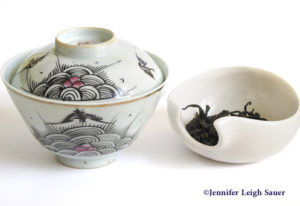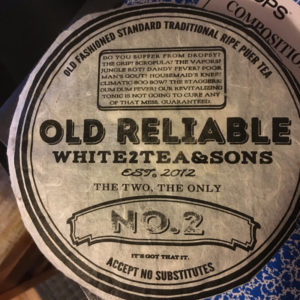Men have for centuries dominated the professional tea industry as tea buyers, sellers, traders, and plantation owners. Historically, they have also led as change agents and tea masters in the cultural tea arts, from Japanese tea ceremony to tea crafting to gongfu cha in China and Taiwan. In addition, gifting tea to and from men has long been a tradition in Asia.
It is not without irony that this particular slow-tea culture custom is now being taken up like a relay-race baton in the least expected place: the fast-paced, male-dominated tech industry.
Perhaps it should not be surprising that at the intersection of cutting-edge science, culture and creativity, one will also find tea. Silicon Valley pioneers like Google and Twitter serve up tea education and specialty tea in between venture capital meetings and engineering one-on-ones. Yixing teapots, gaiwans and double-walled glass tea tumblers can be found on desks and board room tables. Special benefits offered to company employees include tea stations and dim-sum-like tea carts which offer a respite for steeping ambitions and visions of genius. In colloquial tech-speak, the “bros” have gotten their tea on.
And just as their technologies and newest “toys” sweep the educated world, so do their lifestyle preferences, including their palate for the leaf. While men in the western world may have lagged behind women in their appreciation of tea and tea ware in eras past, they are now a part of the tea ware design conversation and the economy of consumers for specialty tea and its accoutrements. Forget grandma’s bone china with flowers, fruit, and bumble bees. Think rustic wood-fired tea bowls, handsome yixing teapots, and gaiwans with flying squirrels or fire-breathing dragons.

Gifting tea for men is easier than ever. Along with the more commonly known, pine-smoke-scented lapsang souchong, teas men might especially appreciate include “masculine” earthy puers, prized green teas like Japanese gyokuro or Taiwanese bao zhongs, roughly processed white teas, and collectable, stone-pressed sheng puerhs which they can either drink now or hold as financial investments for the future.
So true. My birthday is next month and my Chinese friends have a raw pu’er cake already waiting for me to when we get to Hong Kong.
I’m frankly amazed at how many males in IT are interested in fine tea, I suspect much of it has to do with the pace of slow tea and how it serves as both a stimulant while also a moment away to refocus and address problems from a different perspective.